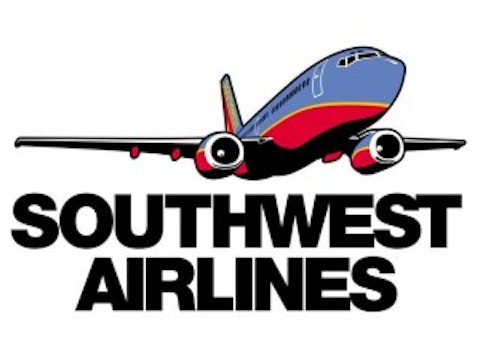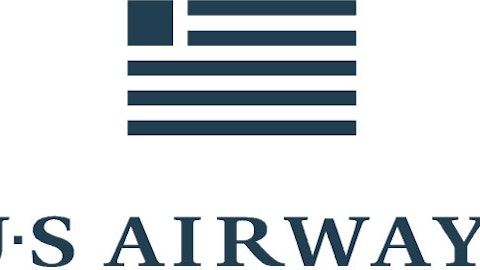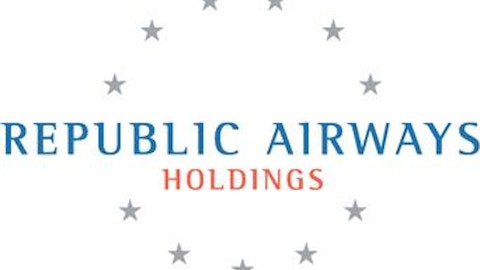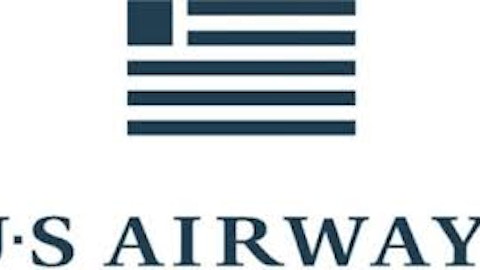Airline stocks have historically been bound by moves in the oil markets; thus, as we see oil inventories rising, it could be time to take a look at the high-flying airline stocks, in part because airlines have historically traded inversely to oil, so falling oil prices are a big positive for airline stocks.
In the latest Energy Information Administration data, crude oil inventories rose 300,000, compared to the expected 400,000 decline. Oil has also seen a decline based on concerns that quantitative easing could be ending. Another big tailwind for the airline industry includes a rebounding economy, which should lead to higher travel. S&P reported that total revenue passenger miles was up 0.6% year-over-year in 2012 and the passenger load factor (utilization of airline capacity) was up 0.8 percentage points to 82.8%.

What could be one of investor’s best bets in the airline industry is Southwest Airlines Co. (NYSE:LUV). Southwest Airlines Co. (NYSE:LUV) snatched up AirTran back in 2011 for a cool $1.4 billion, which boosted the airline’s capacity by 20%. Even with the acquisition, it appears that Southwest Airlines Co. (NYSE:LUV) could have one of the healthiest balance sheets (more on this later).
Southwest Airlines Co. (NYSE:LUV) is also seeming positive results from its Rapid Rewards program and increased offerings, such as EarlyBird check-in, unaccompanied minor travel and low pet fees.
Southwest Airlines Co. (NYSE:LUV) has plans to enter various new markets in 2013, including various cities in Missouri, North Carolina, Michigan and New York. As well, longer-term, Southwest hopes to break into the international markets, which includes Central America, Latin America and Mexico.
The airline is one of the few companies in the industry paying a dividend, and it even bought back nine million shares for $100 million last quarter.
By revenues, Delta Air Lines, Inc. (NYSE:DAL) is one of the airline market leaders. Delta Air Lines, Inc. (NYSE:DAL) is also on an adventure to reduce debt, which fell to $11 billion at the end of 1Q, down from $15 billion at the end of 2010. The ConocoPhillips (NYSE:COP) refinery that Delta Air Lines, Inc. (NYSE:DAL) purchased back in 2012 should start yielding fuel cost savings in 2013; where fuel costs rose 4% in 2012, but are expected to be down 5% in 2013.
Of late, Delta Air Lines, Inc. (NYSE:DAL) is jumping back in to the M&A market, announcing plans to acquire a 49% stake in British carrier Virgin Atlantic, which will boost its presence in the New York to London route market.
United Continental Holdings Inc (NYSE:UAL) saw only a 0.1% rise in 2012 revenue as its unit revenue continues to lag those of its peers. United has been readjusting its offering by replacing a number of seats with its Economy Plus seats, which are flat-bed seats that offer more legroom. The airline has already installed the seats on over 180 aircraft.
United is still integrating its Continental merger, which has improved its international route profile. The U.S. Airways and American Airlines merger is just another step in industry consolidation and should lead to further industry-wide capacity cuts. The merger will give U.S. Airways increased international exposure; however, opposition to the deal claim that the merger could in fact lead to higher airfares, reduced flights, eliminated air service to smaller cities, and new fees.
JetBlue Airways Corporation (NASDAQ:JBLU) made its mark on the industry by offering investors a “unique” flying experience. This product differentiation has served the company well over the past few years. JetBlue Airways Corporation (NASDAQ:JBLU) is also the only non-unionized airline in the industry, giving it increased flexibility to manage its costs.
Going forward, JetBlue Airways Corporation (NASDAQ:JBLU) will be looking toward Latin America for growth. The market already comprises nearly 33% of the company’s total network, and the Caribbean and Latin American markets should see an increase in activity as the economy strengthens — driving an increase in vacation travel.
JetBlue Airways Corporation (NASDAQ:JBLU) had a subpar 1Q, posting EPS of $0.05, versus $0.09 from the same quarter last year and below consensus of $0.10. But the airline spiked nearly 5% last week on speculation that founder, David Neeleman, could be trying to put together the money to buy control of the airline. Neeleman has denied any such plans.





